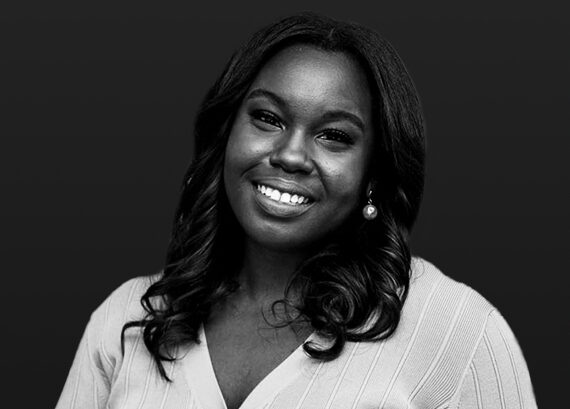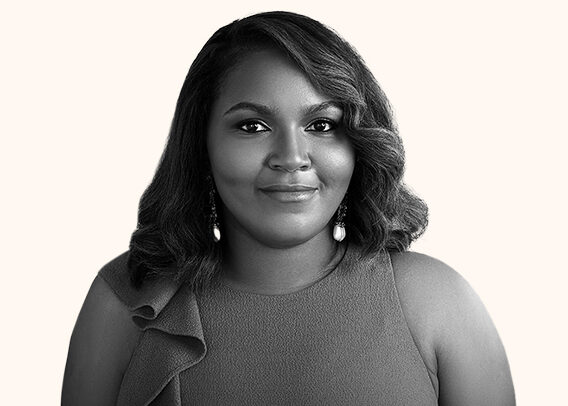Founders on Making Their First Hires | Tory Burch Foundation
Founders on Making Their First Hires
4 founders on how they built out their teams.
40,161 Views
5 Likes
6 min read
Link copied to clipboard
Knowing when (and how) to grow your team is one of the toughest decisions an entrepreneur has to make. How can you trust that an outside person will care about your business–your dream!– as much as you do? Which part of your business needs support first? Of course, small businesses and their needs are varied, meaning there’s no one-size-fits-all answer. So, we turned things over to the experts. Here’s what four founders from our Tory Burch Fellows community had to say about growing their teams.
ASHLEY PICILLO, POINT SEVEN GROUP
Year founded: 2014
Current number of employees: 10
How did you know your business was ready to take on an employee, whether part-time or full-time?
When I started the company, I engaged many subcontractors before hiring an employee. This allowed me to get to know individuals prior to making an offer, and to slowly grow the business without over-leveraging myself on the payroll side. My accountant recommended I begin onboarding contractors into full-time roles after the first year of operations based on our growth rate, and the fact that I needed my team to begin operating as a more cohesive unit (which is tough when contractors work off of their own schedules).
What position did you fill first?
Executive assistant! She handled a little bit of a lot of things — from invoicing to accounts receivables to social media to travel booking. This hire was critical to our growth, as it allowed me to begin delegating lower-level functions of my job so I could focus on bigger picture strategy and business development.
What do you wish you’d known when you started the screening and hiring process?
I think a lot of founders, especially those without funding, wait to make key hires until they have the revenues to support the role. While I can totally appreciate this (and did this myself!), it can result in making rapid hires, which, as we all know, can end badly. Having a strong hiring and staffing plan aligned to your growth plans, is really important and will allow you to have a strong pipeline of candidates. Hiring for the role you needed yesterday doesn’t usually end well. Have a plan and stick to it!
DENISE WOODARD, PARTAKE FOODS
Year founded: 2016
Current number of employees: 7
How did you know your business was ready to take on an employee, whether part-time or full-time?
Going into 2020, we were set to increase our retail doors from 350 to 3500. We had plans to launch 3 new cookie flavors (our line of Soft Baked), one-ounce snack packs and seasonal cookies. I knew I couldn’t spin that many plates without dedicated support, so I started the hiring process.
What position did you fill first?
Director of Operations. My background is in sales and marketing, so I prioritized hiring someone that complimented my skill set.
What do you wish you’d known when you started the screening and hiring process?
When people show you who they are, believe them. I am so thrilled with the team we’re building, and over the past year, I’ve grown confident in my ability to identify the right candidates for their skills, enthusiasm and what they can bring to the team’s culture.
Hiring for the role you needed yesterday doesn’t usually end well. Have a plan and stick to it!
PURVA GUPTA, LILY AI
Year founded: 2016
Current number of employees: 43
How did you know your business was ready to take on an employee, whether part-time or full-time?
Lily AI helps brands and retailers understand the emotional context of online shoppers. At first, my co-founder and I wore many, many hats when building the minimum viable product. After securing our first seed money, we were ready and able to hire. Since [co-founder Sowmiya Chocka Narayanan] and I didn’t have the fashion expertise required for the deep technology we’ve built, it was a no-brainer for us to hire fashion experts first, followed by technologists.
What position did you fill first?
Personal stylists and merchandise analysts. We used their expertise to train our AI.
What do you wish you’d known when you started the screening and hiring process?
I think for the very early stages of a company, genuine passion for the product is the biggest determining factor of the impact early-stage employees can create on the company. Secondly, we recently doubled our headcount within a quarter. While we focused on scouting the best talent, I wish we also had spent more time on hiring processes and onboarding. It’s hard to scale fast without disrupting productivity and culture. With fast growth, comes a lot of learning, too. As we look to again double our headcount in 2021, we’ve definitely streamlined our onboarding.
KATHRIN HAMM, BEARABY
Year founded: 2018
Current number of employees: 24
How did you know your business was ready to take on an employee, whether part-time or full-time?
Having bootstrapped my business, I relied mostly on freelancers at the beginning, on an hourly or project basis. Having that flexibility in the first couple of months helped me to get a better understanding of the business itself and our incoming revenue. By the time I hired someone full-time, I had a much better grasp on which roles we needed to fill to move the business forward, and I also knew that I had enough financial buffer to pay for the salaries.
What position did you fill first?
My first hire was a graphic designer. As a DTC brand, our business is first and foremost online, so it was important for us to have a great website experience for our customers early on and having an in-house graphic designer really helped us to handle the many creative tweaks we made in the early days.
What do you wish you’d known when you started the screening and hiring process?
It’s important to have a good understanding of the candidate’s previous work experience. Someone with a corporate background has a different skill set than someone who has worked in a startup before. I found having the candidate present a project they have worked on in their last job helpful. In addition, we are asking scenario-based questions in an interview where we outline a recent business problem to understand how the candidate would tackle it. This can also give you a better insight if someone is good cultural fit for the company.
More advice from founders straight to your inbox. Sign up now.
Help an entrepreneur by upvoting


